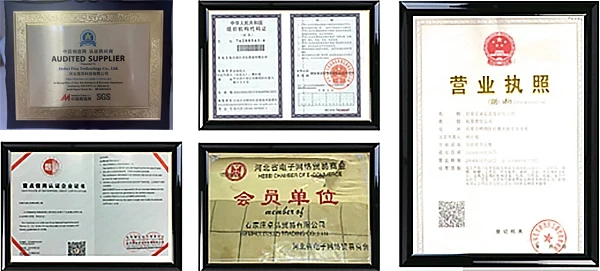



agrochemicals and environment
Agrochemicals and Environment Balancing Agriculture and Ecological Integrity
Agrochemicals, encompassing fertilizers, pesticides, herbicides, and fungicides, play a crucial role in modern agriculture. They enable farmers to enhance crop yields, manage pests, and maintain soil fertility, contributing to food security in a rapidly growing global population. However, the widespread use of these chemicals poses significant environmental challenges that necessitate a balanced approach to agricultural practices.
One of the primary concerns related to agrochemicals is their impact on biodiversity. Pesticides, for example, can adversely affect non-target species, including beneficial insects, birds, and aquatic life. The decline of pollinator populations, particularly honeybees, has been linked to neonicotinoids, a class of neurotoxic insecticides. As pollinators are vital for the reproduction of many crops and wild plants, their decline threatens ecosystem stability and agricultural productivity alike. The loss of biodiversity can lead to destabilization of food webs, reducing nature’s resilience against diseases and climate change.
Agrochemicals and Environment Balancing Agriculture and Ecological Integrity
Agricultural practices that rely heavily on chemicals can also compromise soil health. Soil is a living ecosystem, home to diverse microorganisms that are essential for nutrient cycling and plant health. The overuse of agrochemicals can disrupt soil microbiomes, leading to decreased soil fertility and increased reliance on chemical inputs, creating a cycle that is difficult to escape. Sustainable farming practices such as crop rotation, cover cropping, and organic farming are vital strategies to enhance soil health and reduce agrochemical dependence.
agrochemicals and environment

Furthermore, agrochemicals can have lasting effects on human health. Pesticide residues on food can pose risks to consumers, leading to concerns about the long-term impacts of chronic exposure. Agricultural workers are particularly vulnerable to these chemicals, with exposure linked to a range of health issues, including respiratory problems, reproductive issues, and certain types of cancer. Regulatory measures and education on safe handling practices are critical to protecting those who work in agriculture and ensuring that consumers are not adversely affected by pesticide use.
The challenge then becomes how to balance the benefits of agrochemicals in achieving agricultural productivity with the need to protect the environment and human health. Integrated Pest Management (IPM) is one approach that seeks to optimize pest control while minimizing ecological impact. IPM combines biological, cultural, physical, and chemical tools in a way that mitigates risks to human health and the environment, promoting sustainable agriculture.
Additionally, the adoption of precision agriculture technologies can increase efficiency and reduce the environmental footprint of agrochemical use. By using data analytics, drones, and satellite imagery, farmers can apply agrochemicals more effectively, targeting only areas that need treatment and minimizing waste. This approach not only cuts down on chemical usage but also promotes better environmental stewardship.
In conclusion, while agrochemicals are integral to modern agriculture and play a vital role in ensuring food security, their environmental and health impacts cannot be ignored. A concerted effort is needed to develop sustainable agricultural practices that protect biodiversity, improve soil health, and ensure the safety of food systems. Through innovation, education, and a commitment to sustainable development, it is possible to harness the benefits of agrochemicals while safeguarding the environment for future generations. The path forward lies in striking a delicate balance that supports both agricultural productivity and ecological integrity.
-
Why Sodium Persulfate Is Everywhere NowNewsJul.07,2025
-
Why Polyacrylamide Is in High DemandNewsJul.07,2025
-
Understanding Paint Chemicals and Their ApplicationsNewsJul.07,2025
-
Smart Use Of Mining ChemicalsNewsJul.07,2025
-
Practical Uses of Potassium MonopersulfateNewsJul.07,2025
-
Agrochemicals In Real FarmingNewsJul.07,2025
-
Sodium Chlorite Hot UsesNewsJul.01,2025










